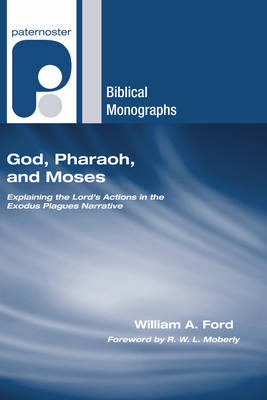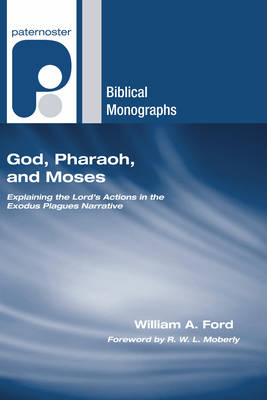
Je cadeautjes zeker op tijd in huis hebben voor de feestdagen? Kom langs in onze winkels en vind het perfecte geschenk!
- Afhalen na 1 uur in een winkel met voorraad
- Gratis thuislevering in België vanaf € 30
- Ruim aanbod met 7 miljoen producten
Je cadeautjes zeker op tijd in huis hebben voor de feestdagen? Kom langs in onze winkels en vind het perfecte geschenk!
- Afhalen na 1 uur in een winkel met voorraad
- Gratis thuislevering in België vanaf € 30
- Ruim aanbod met 7 miljoen producten
Zoeken
€ 49,95
+ 99 punten
Uitvoering
Omschrijving
The story of the Exodus from Egypt is of fundamental importance, both in the Old Testament and beyond. However, it also contains issues that are theologically problematic for many readers, especially concerning the actions of God. Why does God send a series of devastating plagues on Egypt? How do we understand the hardening of Pharaoh's heart? What do the answers to these questions say about the character of God? This study addresses these questions, taking into account the complex interaction of the presuppositions of faith and responsible textual interpretation. The approach is narrative-theological and canonical--reading the story in its current form as a story, and concentrating on the various passages within the story that appear to present rationales for God's actions (especially Exodus 9:13-19 and 10:1-2). By reading these ""explanations"" in their context within the story, and paying attention to such factors as speaker, addressee, purpose, and reception, a picture is built up of the different and developing relationships between God, Pharaoh, and Moses. This complex interaction provides a way to read and understand the wider plagues story, including the plagues and hardening of the heart within it. The study concludes by considering another story with a similarly ""difficult"" portrayal of God's actions--the story of the capture of the Ark in 1 Samuel 4-7, where a similar pattern can be observed. The picture that emerges is challenging rather than comfortable--a God who is responsive, speaking and acting to confront others to make the appropriate response to him. ""William Ford has combined careful scholarship, original thinking, and theological awareness to provide the reader with an exciting new reading of the Exodus complex of events. His detailed study of the ten plagues is outstanding in its observation, explanation, and challenge to the modern reader to take the biblical account seriously. His thoughtful study encourages us to respond appropriately in worship and proclamation of the Good News of the God of Exodus, revealed to us in the true Passover Lamb, Jesus, the Messiah."" --Richard Harvey, All Nations Christian College ""William Ford brings to this task a high degree of competence in Hebrew, a disciplined and rigorous exegetical eye and a subtle theological sensitivity. I am happy to commend this study warmly."" --Paul M. Joyce, University of Oxford ""Ford has helped me, at any rate, to understand the biblical text in a fresh way that does justice both to critical method and to contemporary faith. I hope that my own experience of having my eyes opened and being enabled to make better sense of a famous and difficult narrative will be shared by many other readers too."" --R. W. L. Moberly, from the Foreword William A. Ford is currently working as a visiting lecturer at All Nations Christian College. He has completed a PhD in Old Testament at Durham University.
Specificaties
Betrokkenen
- Auteur(s):
- Uitgeverij:
Inhoud
- Aantal bladzijden:
- 268
- Taal:
- Engels
- Reeks:
Eigenschappen
- Productcode (EAN):
- 9781556353215
- Verschijningsdatum:
- 1/04/2007
- Uitvoering:
- Paperback
- Formaat:
- Trade paperback (VS)
- Afmetingen:
- 161 mm x 228 mm
- Gewicht:
- 408 g

Alleen bij Standaard Boekhandel
+ 99 punten op je klantenkaart van Standaard Boekhandel
Beoordelingen
We publiceren alleen reviews die voldoen aan de voorwaarden voor reviews. Bekijk onze voorwaarden voor reviews.









